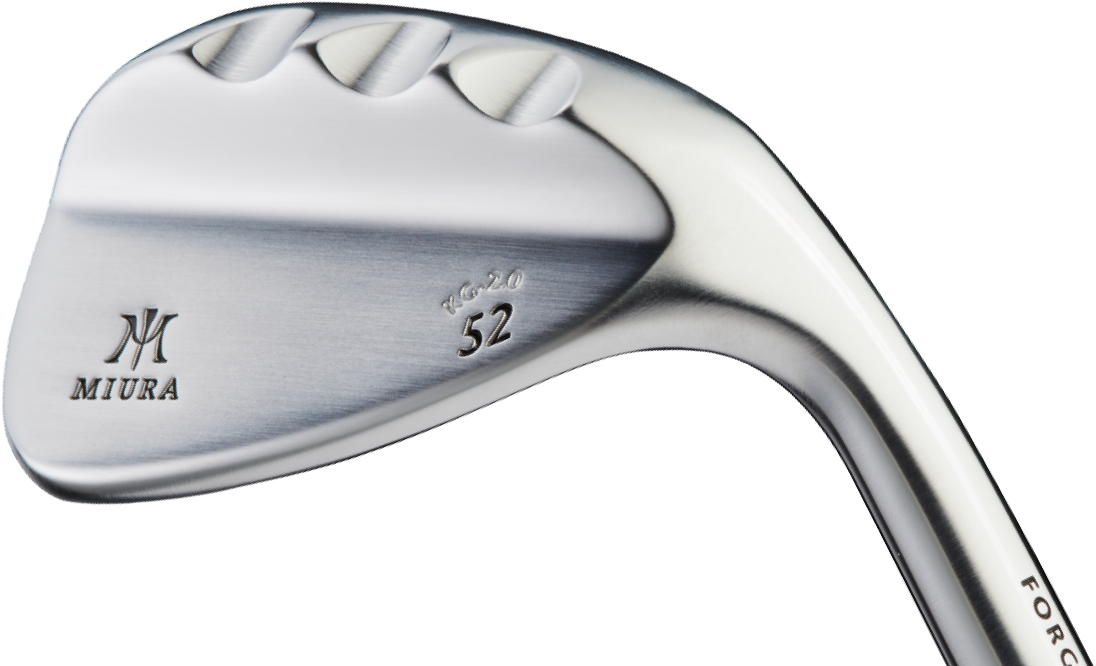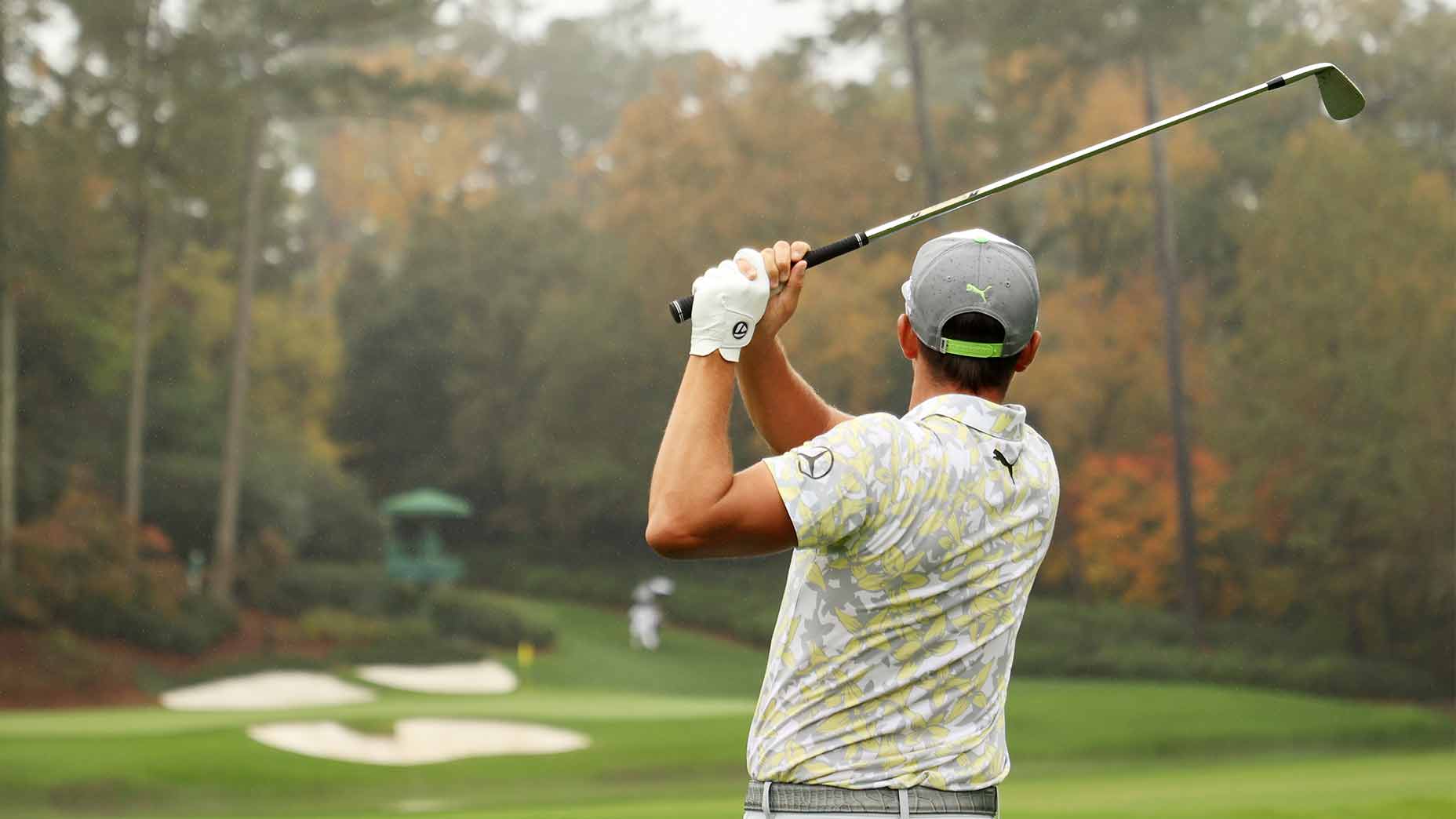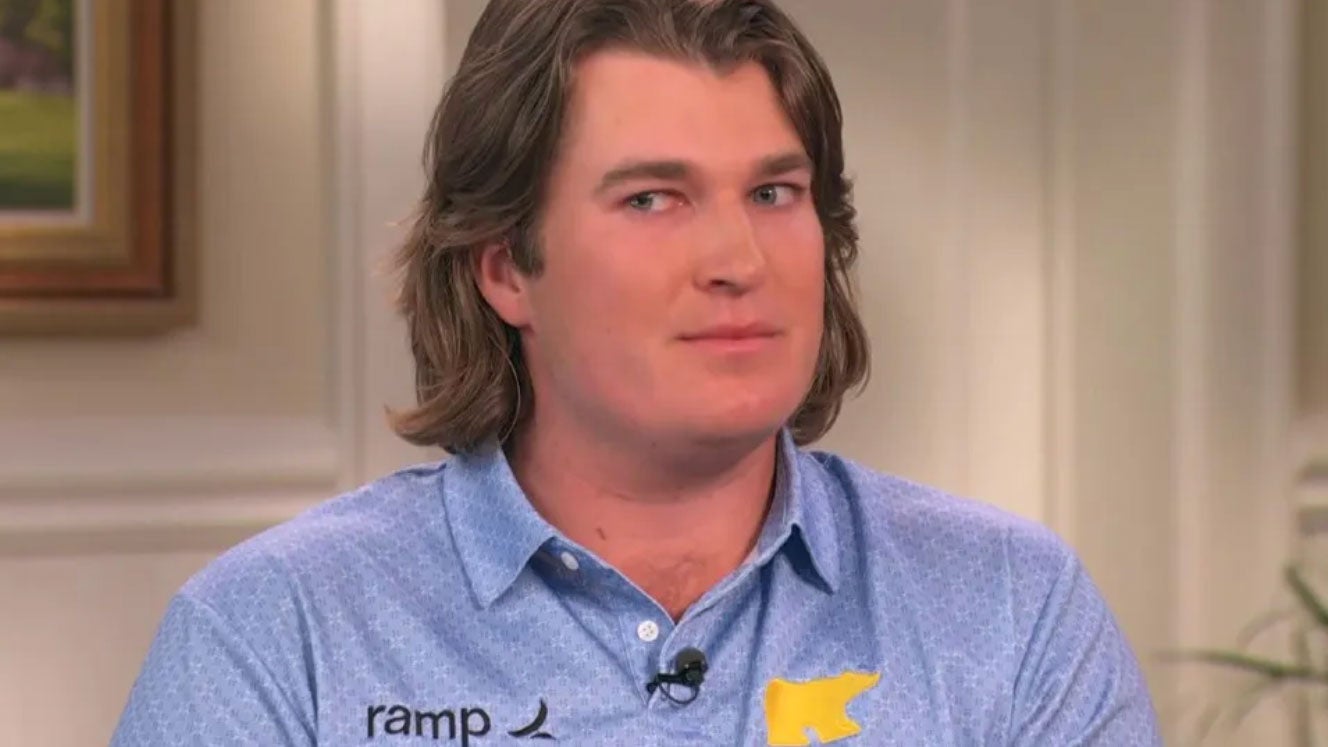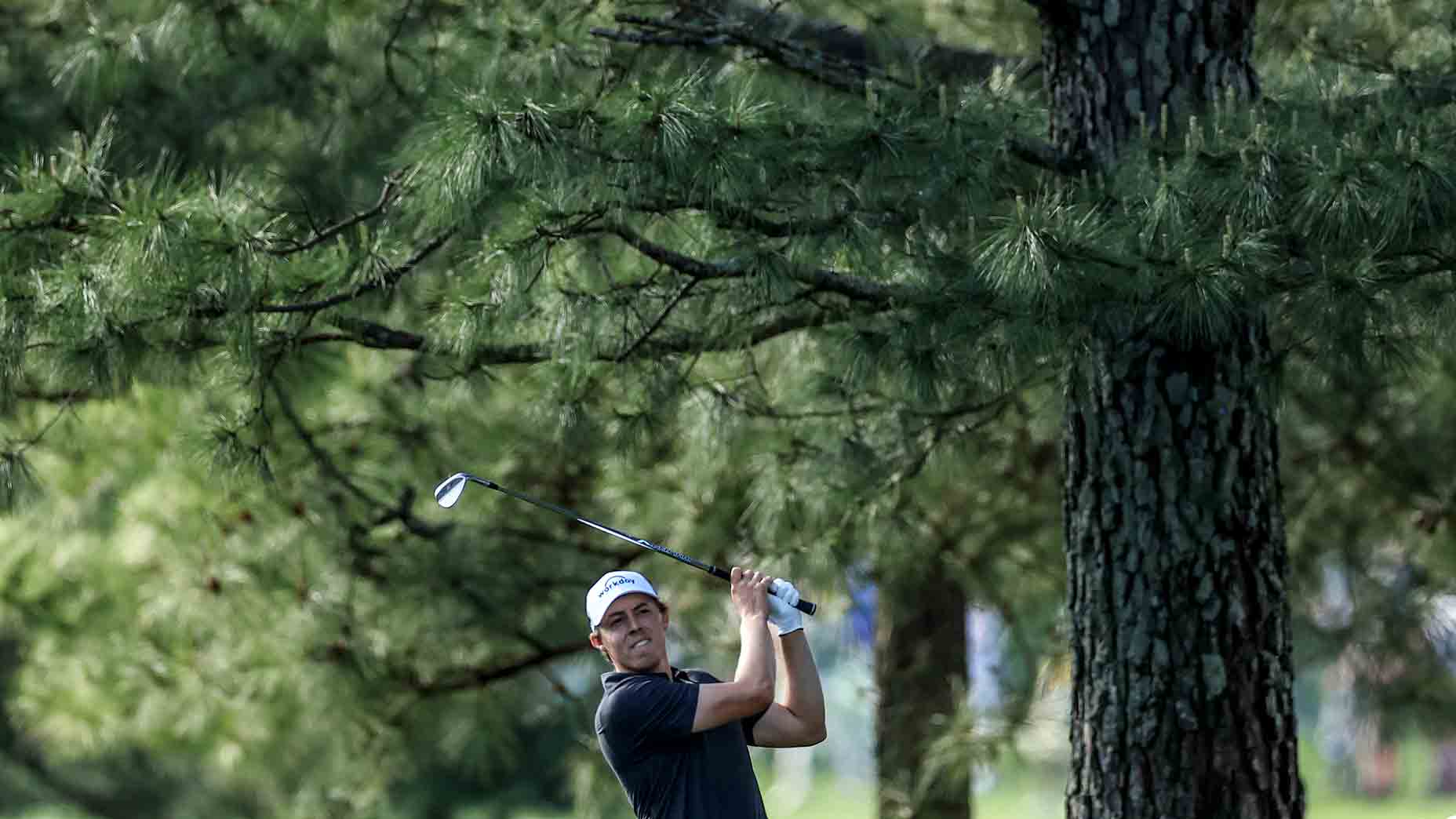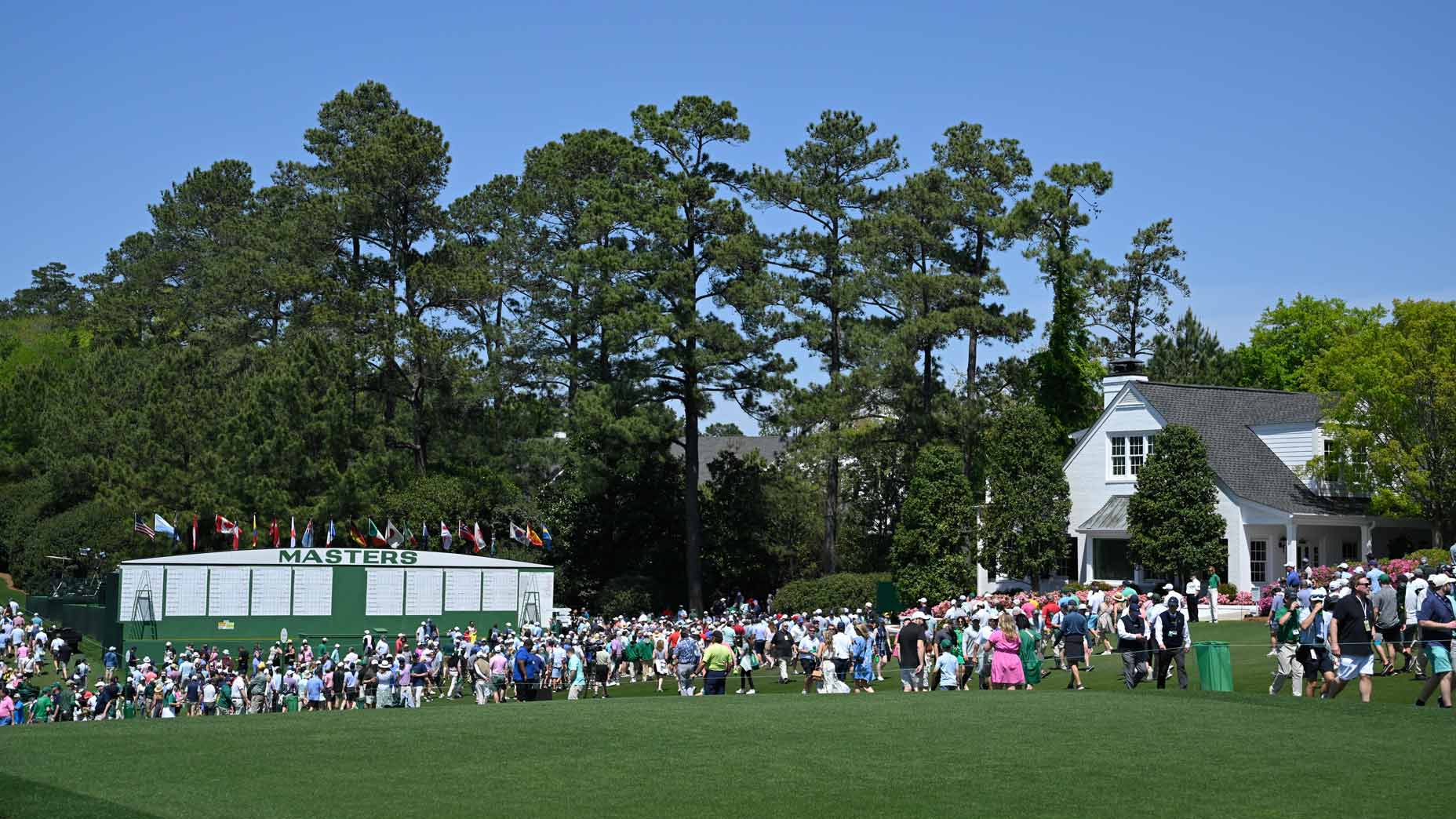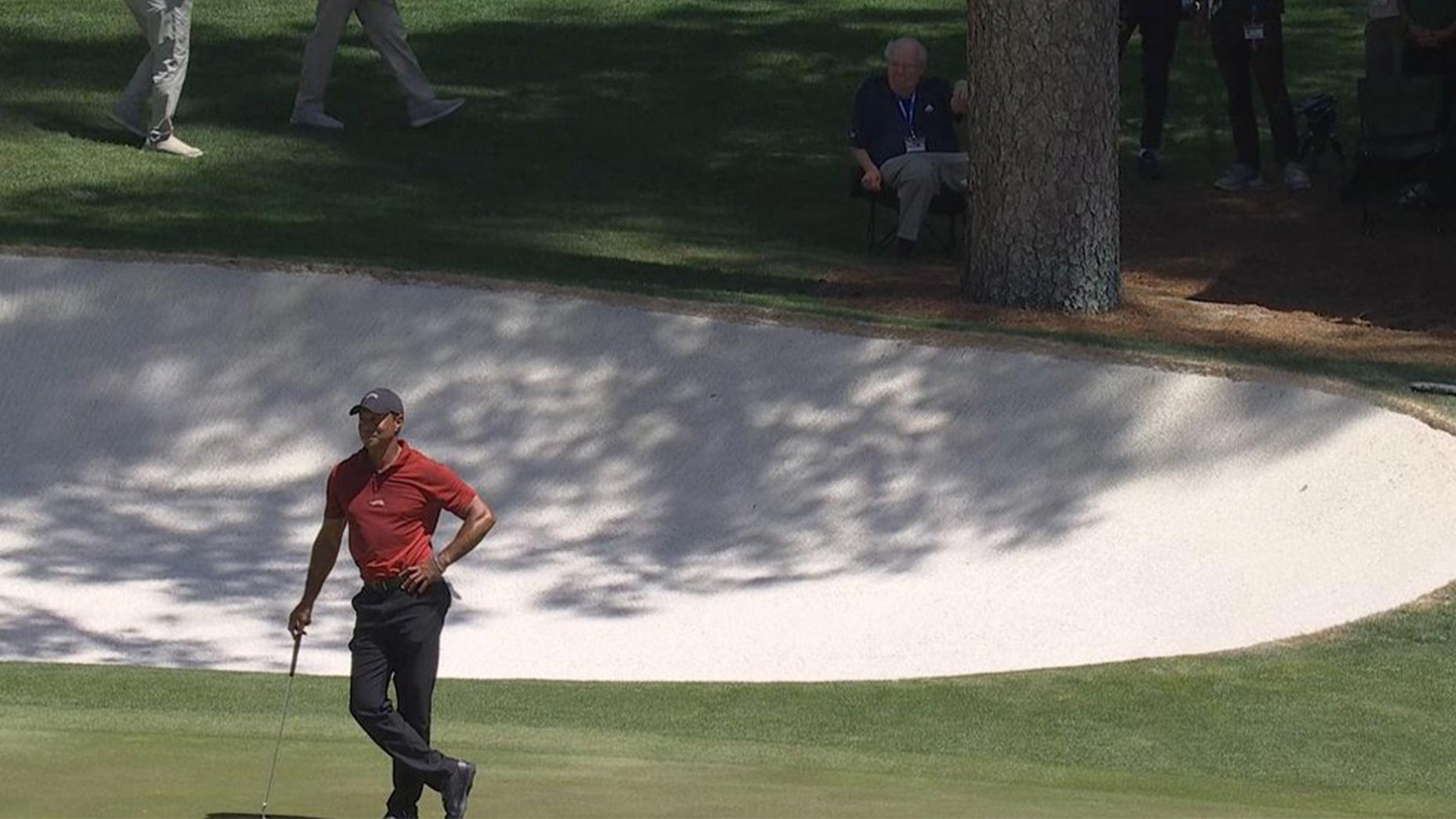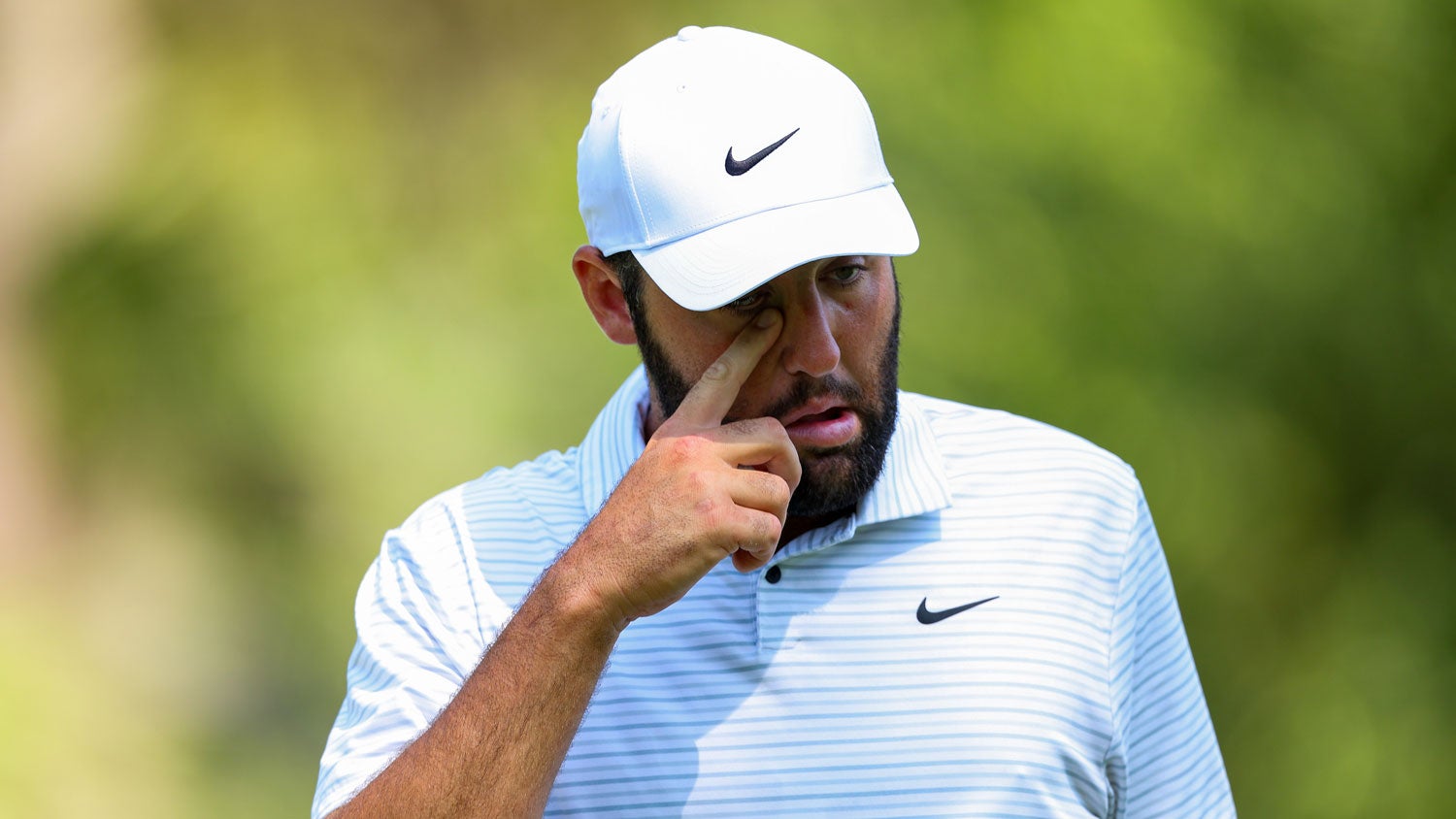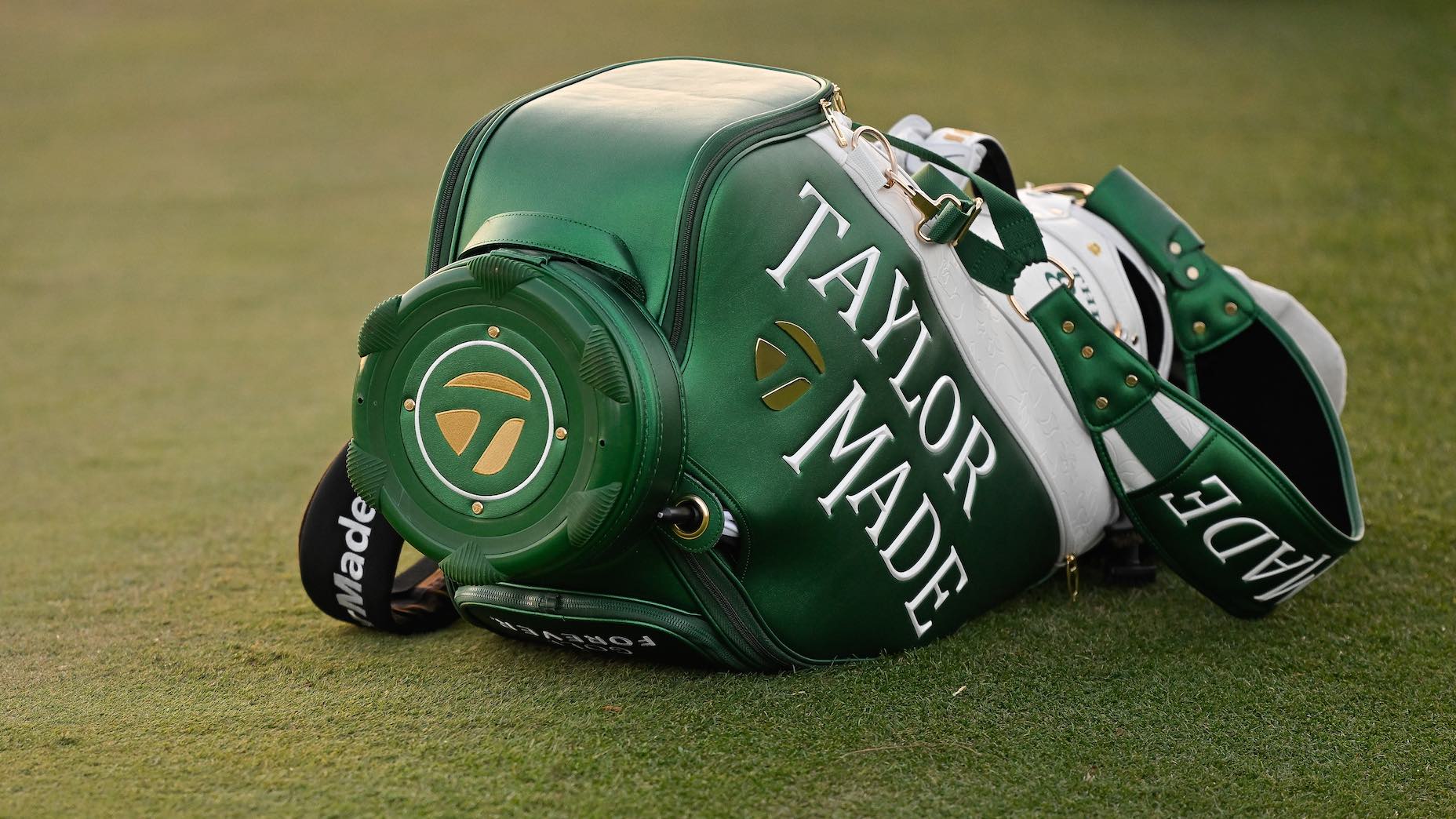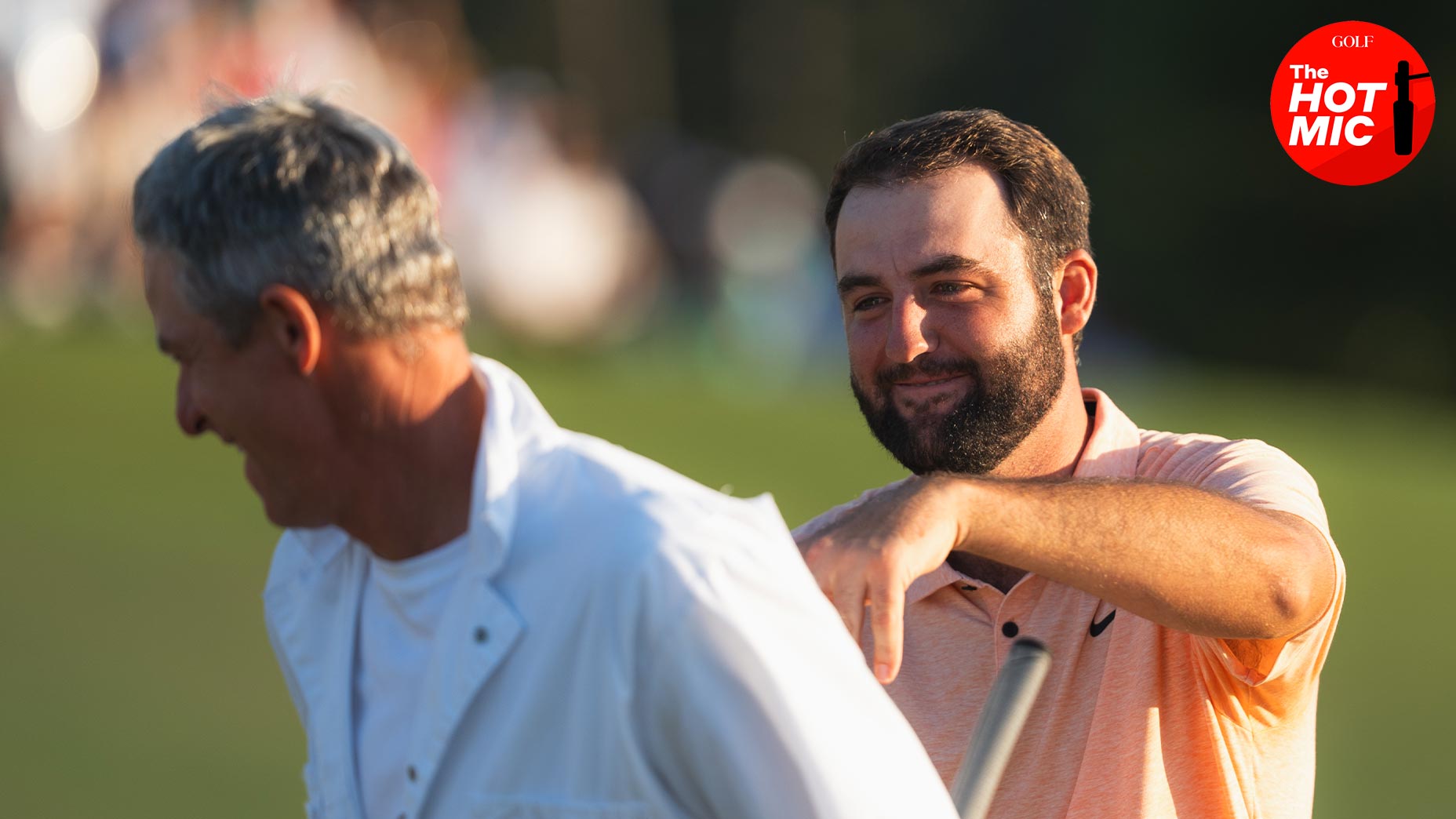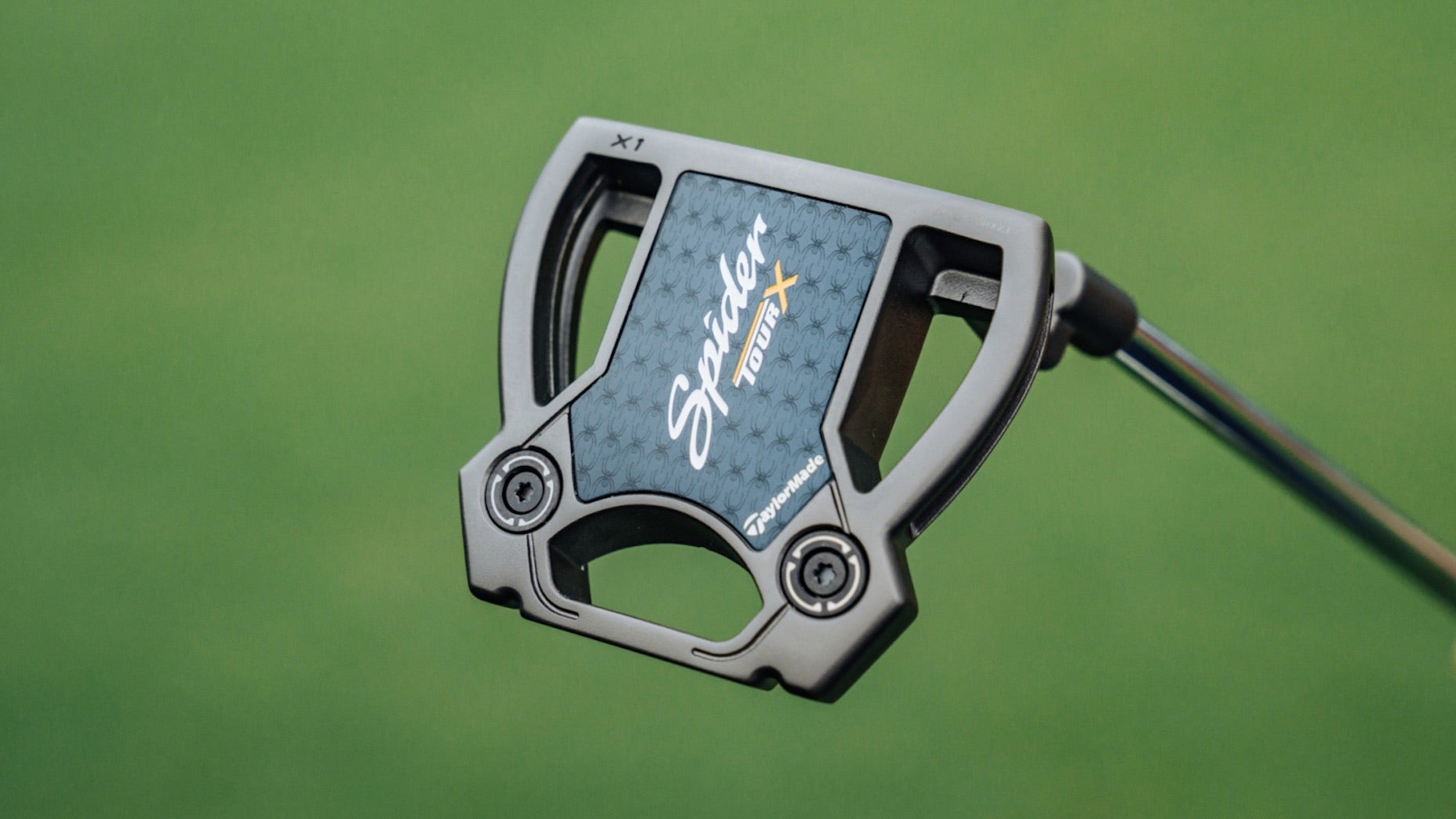Are players today too reliant on their caddies? Jack Nicklaus chimes in
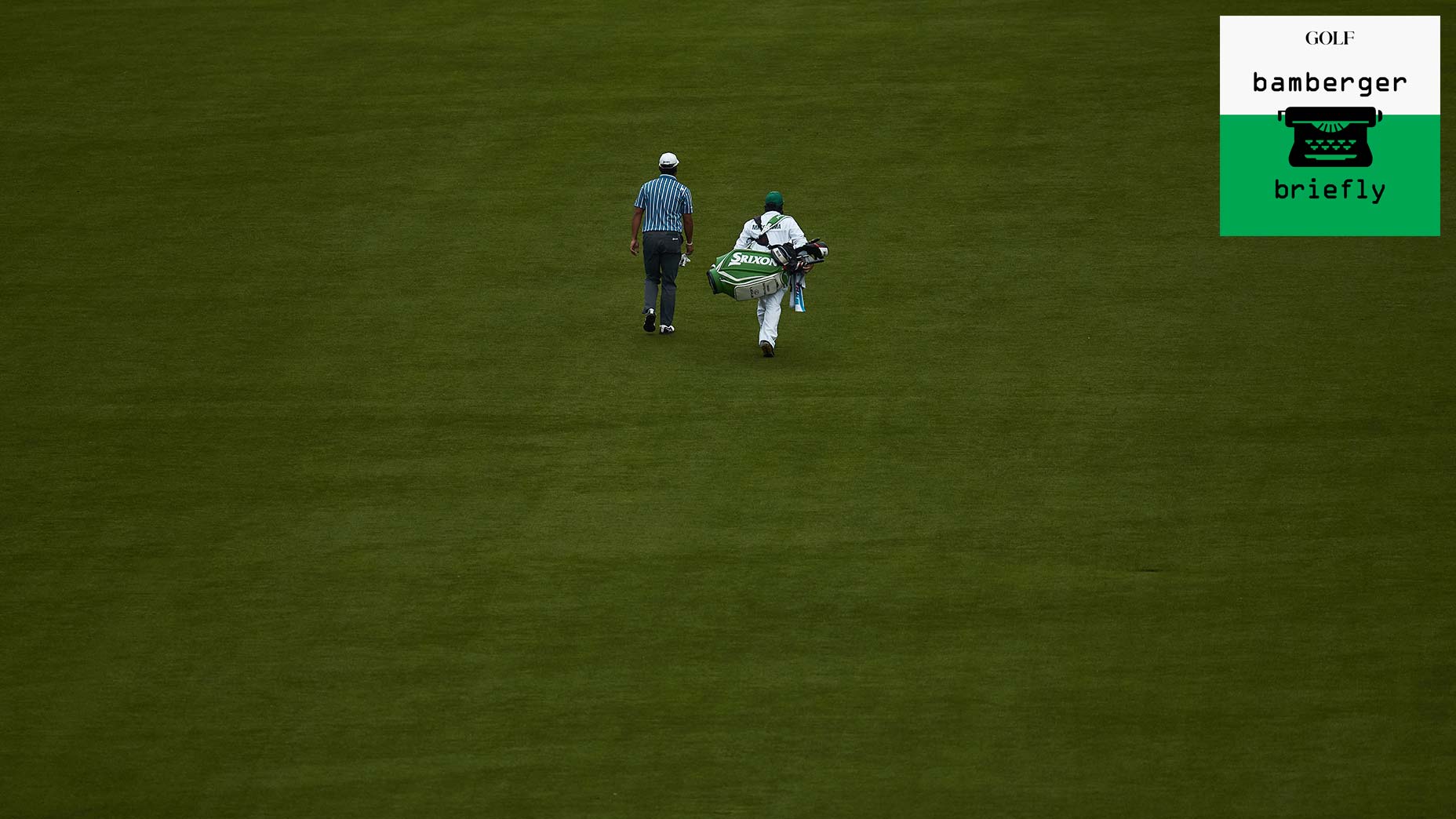
The first round of the Masters begins bright and early on Thursday morning.
Getty Images
This week’s Augusta National-centric Bamberger Briefly will bring you Masters tidbits straight from the man, Jack Nicklaus, culled from a recent wide-ranging interview. Part I, on Monday, covered the feat this year’s winner will be in position to accomplish that no one has before. Part 2, on Tuesday, was on the shot that won Tiger Woods the 2019 Masters.
Jack Nicklaus won his first Masters in 1963 and his sixth and last Masters in 1986. That’s a long prime, 23 years. Even at the 1998 Masters, at age 56, he was competitive late on Sunday afternoon.
On this Wednesday, the final practice day before the tournament begins, all manner of players will be conferring with their swing coaches, their caddies, their various therapists for mind and body and who knows what else. It’s the way of the game today and it’s been that way for decades now.
Shop the Nicklaus Collection
SHOP NOWIt wasn’t like that for Nicklaus. He never had his longtime golf teacher, Jack Grout, at Augusta. Nicklaus won his first five Masters titles with an Augusta National club caddie name Willie Peterson, a stout man who often had a stubby cigar in his mouth. But Peterson, who died in 1999 at age 61, wasn’t an advisor to Nicklaus on the course.
“Willie was a great cheerleader, a great guy,” Nicklaus said in a pre-Masters interview last month with Sean Zak of GOLF.com, as I caddied for Sean. Nicklaus’s comments here are lightly edited for clarity.
“I loved Willie, just loved his personality. He was just so enthusiastic about everything that we did. But I never asked Willie about a club or a yardage or anything. Never asked him to read a green, not once. It didn’t make any difference to Willie. Willie was there cheerleading.”
Nicklaus noted with interest that for the past several years, including his wins at East Lake in 2018 and his wins at Augusta and in Japan last year, Tiger Woods has not been working with a golf coach. Woods and his caddie, Joe LaCava, have a close relationship, but Nicklaus said, “I don’t think Tiger relies a lot on his caddie, although he has a good caddie.” He knows you’ll never hear Woods and LaCava discuss the nuances of shots as you do routinely with Masters winner Jordan Spieth and his caddie Michael Greller, or as Phil Mickelson, a three-time Masters winner, did for years with Jim “Bones” Mackay.
Nicklaus was asked if players today are too reliant on their caddies.
“I think so,” Nicklaus said. “I think they’re too reliant on a lot of things. I used to go down to Bobby Jones’s cabin every year at Augusta. My father and I. He invited us down. He said, ‘Once I could correct myself on a golf course, once I can fix my problems as I’m going, that’s when I became a golfer.’”
Nicklaus’s memory for the conversations that have shaped his life is prodigious.
He described his work in his professional career with Grout, who was the longtime pro at Scioto Country Club, in Columbus, Ohio, where Nicklaus grew up.
“I saw him two or three times a year when I was playing,” Nicklaus said. “He really didn’t say that much. We’d just sort of talk and look and if he saw something he’d say something. But he wanted me to figure out how to play, what to do, and how to do it. That’s why I relied on.
“I think that the players today would be better players, the more they relied on themselves. Then they don’t have any question in their mind when they pick up that club. I think that if they have their own conviction of what to do, I think they probably would do better in the long run. I personally feel they would all be better players if they relied more on themselves.”
Nicklaus does believe in the value of players looking at videos of their own swings.
“I remember when I won the U.S. Open at Pebble Beach in ’72, I flew all night and had a VHS made of the Open and before I went to bed the next day. On Monday I watched the whole tournament because I had it fresh in my mind. I watched every shot, I watched everything, so I knew what I did. And if I had a shot that I wasn’t comfortable with, I looked at it maybe two or three times and said, ‘Why did I do that? Was that a judgment call or was that a swing error, what was it?’
“Every day, when I played, I would finish my round and 98 percent of the time I went to the practice tee. I wanted to find out what I was doing wrong. I wanted to find out what I did right. I wanted to find out what I wanted to do the next day.”
You never saw Nicklaus have a long practice session on a Wednesday before a major, not at Augusta, not anywhere else. By Wednesday he was ready to go. He’s surely ready now for Thursday, to get this delayed Masters started. He’s 80, and he’s only hitting one shot, but to Nicklaus every shot was important. He owned every shot he ever played.
Michael Bamberger welcomes your comments at Michael_Bamberger@golf.com.
